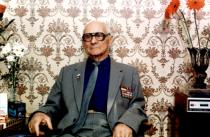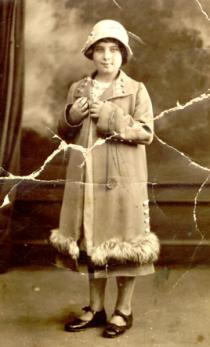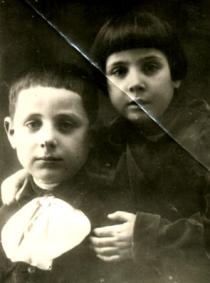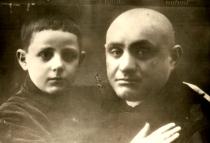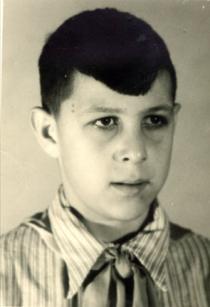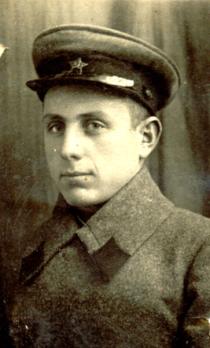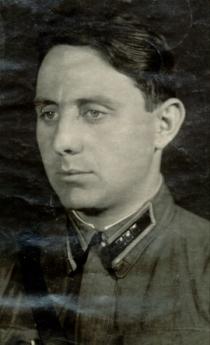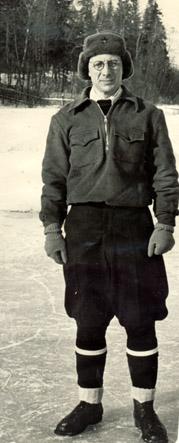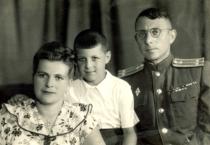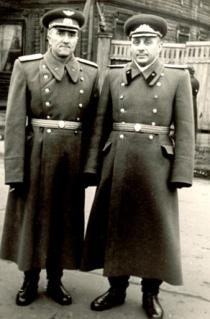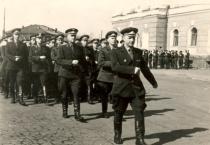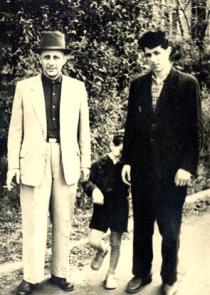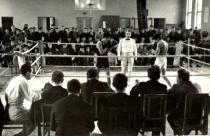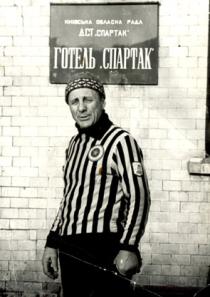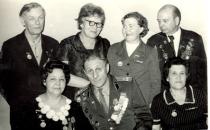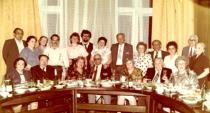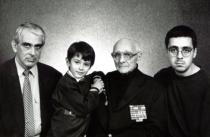This is me cadet of the Kharkov Air Force Communication School. I sent this photo to my parents and sister at home. This photo was taken in Kharkov in 1938.
I finished school in 1937. I decided to go to a military school. I went to Kharkov [440 km from Kiev] where I entered the Kharkov Air Force School of Communications. There were two companies in this school: one trained radio operators for landing troops and another company trained operators for Air Force troops. I became the best cadet at this school. While the other cadets were just beginners of studying the Morse code, I was already the 1st class operator. The 1st class radio operator can receive and transmit at least 80 signs, a 2nd class operator can operate 60 and a 3rd class operator can operate 40 signs per minute. We had Morse code classes every day. Our classes started after we had breakfast. In class my trainer gave me a transmission task while the others were receiving what I transmitted. We also studied self-defense and jumped with parachutes. It’s not true that one can get used to everything. I remember the feeling of fear before my first jump, but the following ones were even more fearful, when the door opened and I looked down… I never got used to this, though I jumped a number of times. Perhaps, the feeling of fear is natural, and it is important to overcome it.
I finished this school with honors. In August 1939 I was awarded the rank of lieutenant and was assigned to serve in Engels town [800 km from Moscow] near Saratov in Povolzhiye populated with German colonists. My Yiddish helped me to communicate with them. I served in the 202nd airborne landing brigade. About one month later my headquarters informed me that the 64th howitzer artillery regiment in Saratov needed communication officer and I was sent to Saratov. I became communication commanding officer at the age of 20.
In 1940 I decided to enter the Military Academy. The regiment commander approved my application. I took entrance exams in the regiment headquarters in Kuibyshev [present Samara, about 1200 km from Moscow]. I passed mathematic, physics and the Russian language exam. They confirmed my admission to the Leningrad Academy. It was called the Military Electrotechnical Academy of Communication. After the war it was renamed into the Academy of Communication. In September 1940 I started my studies in the Academy. We lived in barracks. On Sunday cadets had a day off and were allowed to walk in the city. I went to museums and theaters. Leningrad [called St. Petersburg today] is a wonderfully beautiful city. One day I met Masha, Maria Akimova on a tram stop. After the war she became my wife and the mother of our two sons.
In June 1941 I finished my first academic year in the Academy. I was eager to visit my parents on vacation, and we were surprised to hear that we were supposed to stay in the Academy after exams. My distant relative living in Leningrad invited me to the opening of fountains in Petergof [Petergof or Peterhof - a palace, fountain and park ensemble built by Peter the Great in the early 1700s, often called the ' Russian Versailles' and 'Capital of Fountains', is situated 30 km from Saint Petersburg. The fountains operate during the summer.] on 22nd June 1941. We went to Petergof and were walking around, when a military patrol approached me and ordered to go back to my military unit. I was bewildered: I had a leave and observed the rules so there seemed to be no reason for me to be notified like this. Another patrol repeated this requirement. I went to the station to take a local train and that was where I heard that the Great Patriotic War began.

